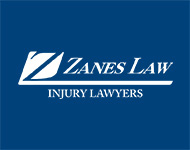![]() Contact Us 866-499-8989
Contact Us 866-499-8989
Should I Give a Recorded Statement About My Car Accident if Requested by Claims Adjuster?
- What Type of Questions Will the Insurance Company Ask You After a Car Accident?
- How Should I Answer Questions Asked By the Insurance Adjuster?
- Will Refusing to Give a Recorded Statement to the Insurance Adjuster Hurt My Claim?
- If I Haven’t Spoken to a Lawyer, What Should I Tell the Insurance Company?
- What Should I Do Before Giving a Recorded Statement to the Insurance Company?
- Can I Trust Talking to the Insurance Company After an Accident?
- Home
- FAQs
- Car Accidents
- Should I Give a Recorded Statement About My Car Accident if Requested by Claims Adjuster?
It is standard procedure for the insurance company to contact you on a recorded call after an auto collision. Whether you should give a recorded statement about your car wreck to a claims adjuster or not will depend on the circumstances of your auto accident. Although it isn’t illegal, there are valid concerns about giving consent.
In this article, our vehicle accident attorneys share commonly asked questions surrounding this complicated tactic that insurance providers use. If you are unclear or have growing concerns following your car accident, it is always best to speak to a licensed attorney first.
What Type of Questions Will the Insurance Company Ask You After a Car Accident?
Immediately following a car accident, the insurance company will reach out to you to discuss details about the motor vehicle accident that you were involved in. Before they begin, they must get your consent or notify you that the call is being recorded.
The following are examples of what the insurance agent may ask:
- Your recollection of events surrounding the car accident, like the date, time, and location of where the accident occurred
- Environment details such as there being objects in the road, potholes present, or unsafe weather conditions
- Information about the vehicles involved, like the car’s make, model, year, and plate number. They may also ask which direction and estimated speed the car was traveling at the time that the crash happened
- Confirmation on if there were witnesses and if you were able to collect their contact information
- Details about your injuries and damages, including if you have received medical care after the collision or describe the extent of your injuries, pain, or property damage
- Information regarding your accident policy
For a free legal consultation, call 866-499-8989
How Should I Answer Questions Asked By the Insurance Adjuster?
While it is up to you to decide whether or not to consent to a recorded statement with a claims agent, if you decide to speak with them before seeking legal advice, you must answer honestly.
It is never wise to speculate or share theories about what you think happened when speaking to the insurance agency. Sticking to facts or advising that you are unsure about your damages and injuries are acceptable responses. It is important not to share misleading, vague, or false information because it can be used against you at a later time.
Will Refusing to Give a Recorded Statement to the Insurance Adjuster Hurt My Claim?
While refusing to give a statement won’t automatically dismiss your claim, the insurance agency may make you a lowball offer or insinuate that without a statement, your claim could be delayed. The goal of an insurance company is to make a profit. If they are unable to examine the validity of your claim from a recorded conversation, they may resort to unprofessional tactics.
Click to contact our personal injury lawyers today
If I Haven’t Spoken to a Lawyer, What Should I Tell the Insurance Company?
It is suitable to tell the insurance company that you will be visiting a doctor to find out the extent of your injuries or speaking to a lawyer. If you decide to take this route, only give details about the accident that can not incriminate you or jeopardize your claim.
After an accident, insurance companies typically get in touch with you right away to secure a recorded statement or the release of medical records to safeguard their assets before you speak with a lawyer. If you think that it may be a bad idea to give the insurance agent a recorded statement about the vehicle collision, do not give consent or sign any documents.
Complete a Free Case Evaluation form now
What Should I Do Before Giving a Recorded Statement to the Insurance Company?
Take into account the following legal options you have before giving a recorded statement:
- You are not required to give a recorded statement: You are not required by law to provide a recorded statement to the other driver’s insurance provider unless you are required to do so under a contract.
- Formulate a calculated response: Remember that anything you say in a recorded statement may be used against you during negotiations or litigation in court. So, it’s important to carefully consider your words before speaking and to avoid making any incriminating statements.
- Consult with an attorney: Deciding if you should agree to a recorded phone call with an insurance adjuster after a car wreck is a challenging decision that you don’t have to face alone. If you are nervous or unsure about what you should say, it’s a good idea to consult with an attorney.
An attorney can advise you on your rights and obligations and help you prepare for the recorded statement.
Can I Trust Talking to the Insurance Company After an Accident?
When considering if you can trust providing a recorded statement to the car insurance company after a collision, the decision is ultimately yours to make. Insurers are state-regulated businesses that aim to maintain the trust of their customers and hold on to the funds of their business. You can trust them to explain your policy limits and options and adhere to state insurance department standards.
There is a growing perception that insurance adjusters are untrustworthy because:
- They may use your words to invalidate your claim: Your remarks or those put on social media may be used by the insurance company to suggest that you contributed to the accident or that your injuries are not as extensive as you claim them to be.
- They may use predatory tactics on you: Insurance adjusters may use intimidation techniques to try to discredit your claim, such as accusing you of being dishonest or asking probing questions.
- They may restrict your privacy rights: Your medical history and social media accounts are just a few of the many pieces of information that insurance companies have access to about you. When looking into your claim, they could use this information against you.
You should be aware of these strategies and have an experienced car accident attorney on your side since insurance companies have a financial motive to pay you as little as possible.
Call or text 866-499-8989 or complete a
Free Case Evaluation form
 Why Bruce Jenner’s Accident is a Lesson for ALL Drivers Out There
Why Bruce Jenner’s Accident is a Lesson for ALL Drivers Out There Every media outlet has a scope on the recent and fatal Bruce Jenner car crash. Many accounts have recalled the incident in varying detail but none look promising for any party involved including the
 Phoenix Light Rail Crash
Phoenix Light Rail Crash A very major and scary crash recently closed down a major Central and Indian School Road intersection. Although the crash has long been cleared since Saturday, the collision between a
 Tracy Morgan Lawsuit Finally Settles
Tracy Morgan Lawsuit Finally Settles Many fans of the famous (now ended) sitcom, 30 Rock, anxiously followed the news after beloved actor and comedian Tracy Morgan was involved in a trucking accident. A Walmart tractor-trailer
 And Then It Happens To You… A Car Accident.
And Then It Happens To You… A Car Accident. An accident victim who was injured in a car accident in Tucson, Arizona describes her experience in this guest post. You hear about them all the time. You have even witnessed some right in
Tell us what happened…
Receive a Free, No-Obligation, Case Evaluation Now
